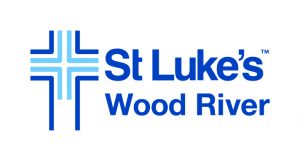By Jesse Foster, DPT, ATC, OCS, SCS; Senior Manager, St. Luke’s Clinic – Rehab
 St. Luke’s Wood River and the St. Luke’s Wood River Foundation are always looking at ways to help people in the community improve their quality of life from injury prevention to rehabilitation of an injury, to help patients return to regular activities. One of those ways is to offer baseline ImPACT testing to help assess and manage concussions at no cost to the community. Due to community generosity, the SLWR Foundation recently awarded a grant making it possible to offer this important test at no cost to community members. In most communities the cost of just taking the test can be $290.
St. Luke’s Wood River and the St. Luke’s Wood River Foundation are always looking at ways to help people in the community improve their quality of life from injury prevention to rehabilitation of an injury, to help patients return to regular activities. One of those ways is to offer baseline ImPACT testing to help assess and manage concussions at no cost to the community. Due to community generosity, the SLWR Foundation recently awarded a grant making it possible to offer this important test at no cost to community members. In most communities the cost of just taking the test can be $290.
SLWR is now providing baseline ImPACT testing and post-concussion testing to all youth clubs and school-based teams and to all the schools in the county and region. The sports range from lacrosse, mountain biking, hockey and skiing, to gymnastics and cheer. Many sports-related organizations require testing.
In the past, every sport and every school had their own set of tests. This made it impossible for the computer program to correlate the data, physicians may not have had the ability to compare the tests and it frustrated athletic directors and coaches because they would not know if a participant had even taken a test. Assessment, transparency, treatment and outcomes will improve for patients in Blaine, Lincoln and Camas counties with SLWR conducting all the testing in the region.
You don’t have to be a top-notch athlete to benefit from the test. It is also beneficial for the general community, as a head injury can result from numerous other traumas such as trips, falls, bumping into something or a motor vehicle accident.
We all know that each of us is wired differently and that not all injuries are the same. A baseline neurocognitive test allows for documenting the healthy brain function of an uninjured test taker. It gives a composite score on memory, visual motor speed, reaction time and impulse control as well as symptom scores. The test itself only takes 20 minutes using a computer or laptop. The test is appropriate for anyone over the age of 12. Students do need to take the test every two years. If a baseline test has not been conducted, physicians use national standards or norms to use as a guideline in assessing the concussion and when a person can resume normal activity levels. Norms are available up to age 59. If a community member is over 59, then it is even more important to have a baseline to use for comparison, assessment and treatment.
When a person suffers a head injury, they may experience the following symptoms: headache, lack of coordination, memory loss and confusion, nausea and vomiting, dizziness, ringing in the ears, sleeplessness and excessive fatigue. When a head trauma occurs, the same test used for the baseline is administered, and the results are compared to help determine the patient’s post-injury status and to make concussion treatment decisions.
Physicians have a clearer picture of the short- and long-term memory impact when they can compare results. An MRI or X-ray will not reveal impact unless hemorrhaging is present. Using the results of baseline and post-trauma, a physician can make a more thorough evaluation of the patient using both objective and subjective observations.
Understanding what areas are impacted can help with developing a treatment plan. In the past, we were all told to go to a dark room and do nothing, but now we know that having some exercise that increases blood flow can help speed the healing process. Post-injury testing also assists in determining when it’s okay to return to activity, particularly for high-risk sports.
To learn more about ImPACT concussion testing or to schedule an appointment, call St. Luke’s Clinic – Rehab in Ketchum, (208) 727-8253 or Hailey (208) 727-8281.
